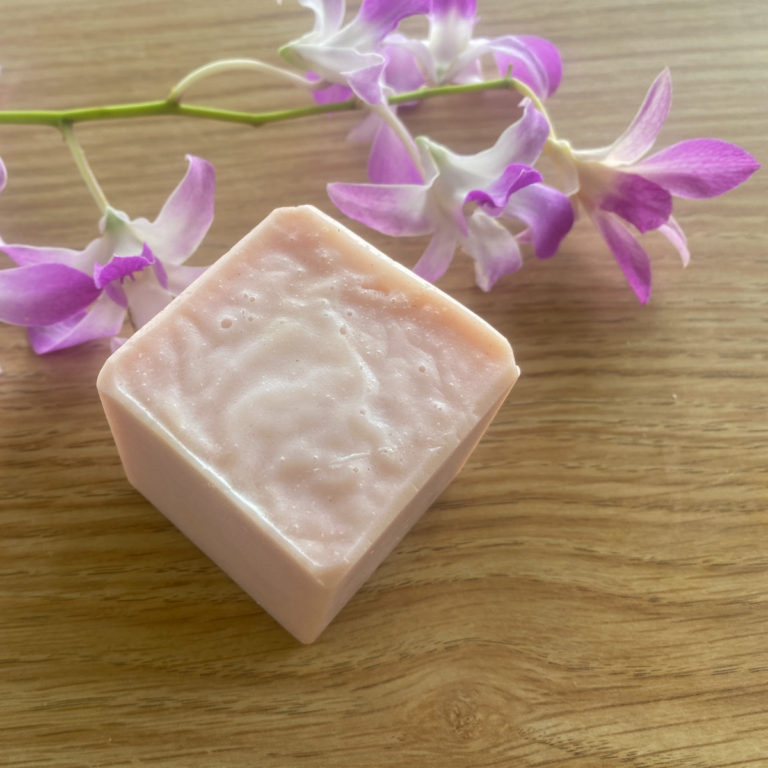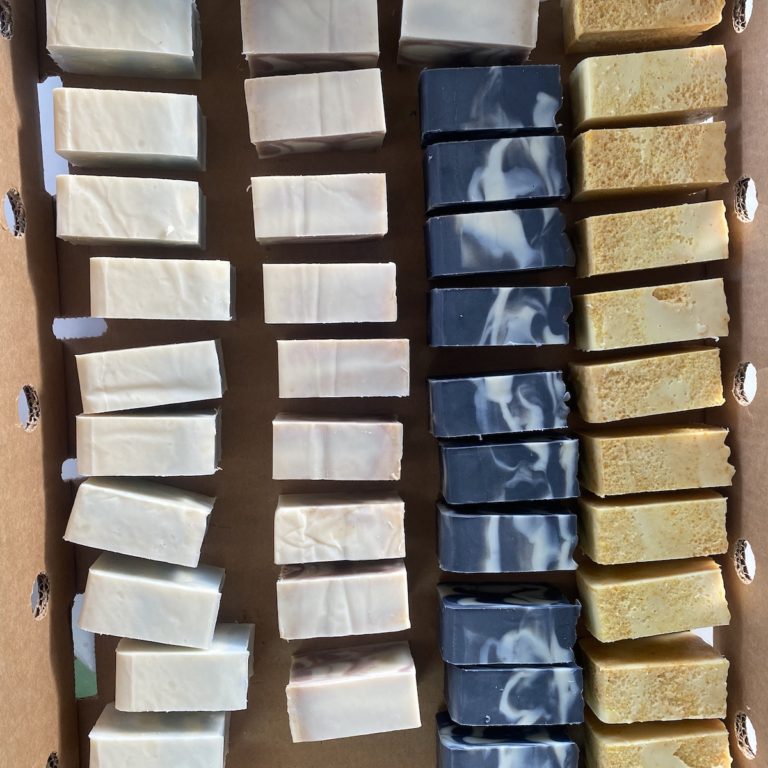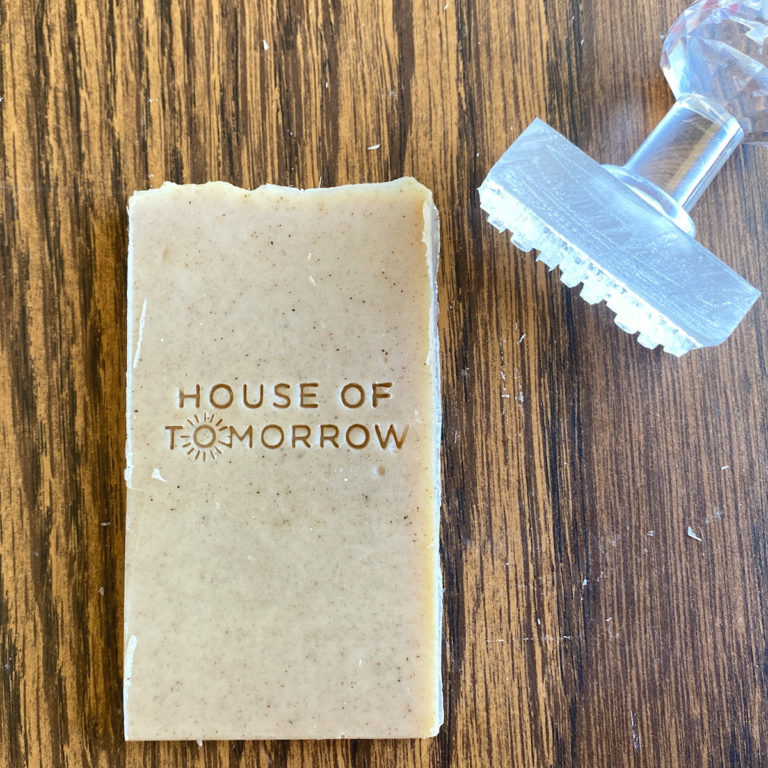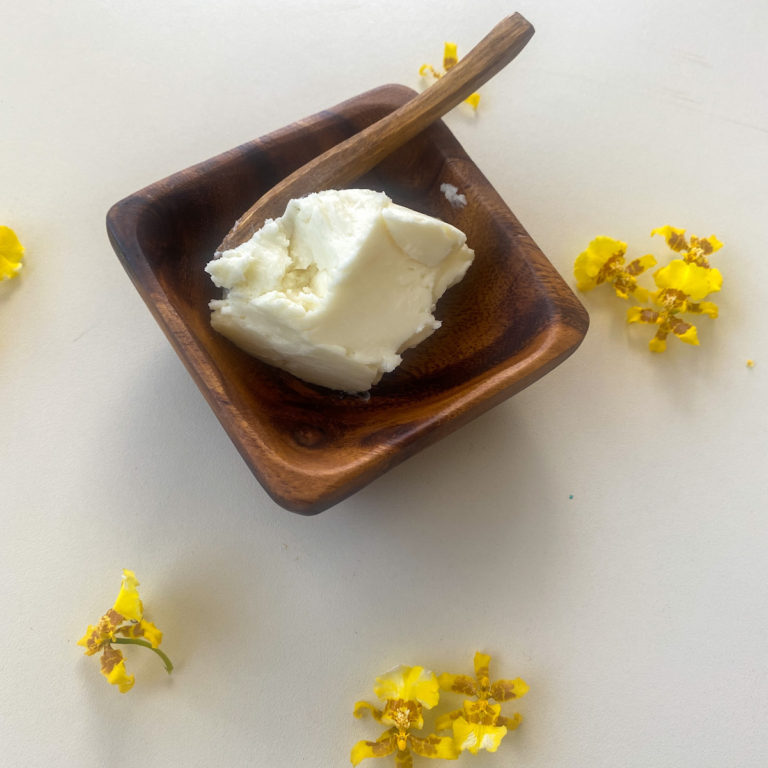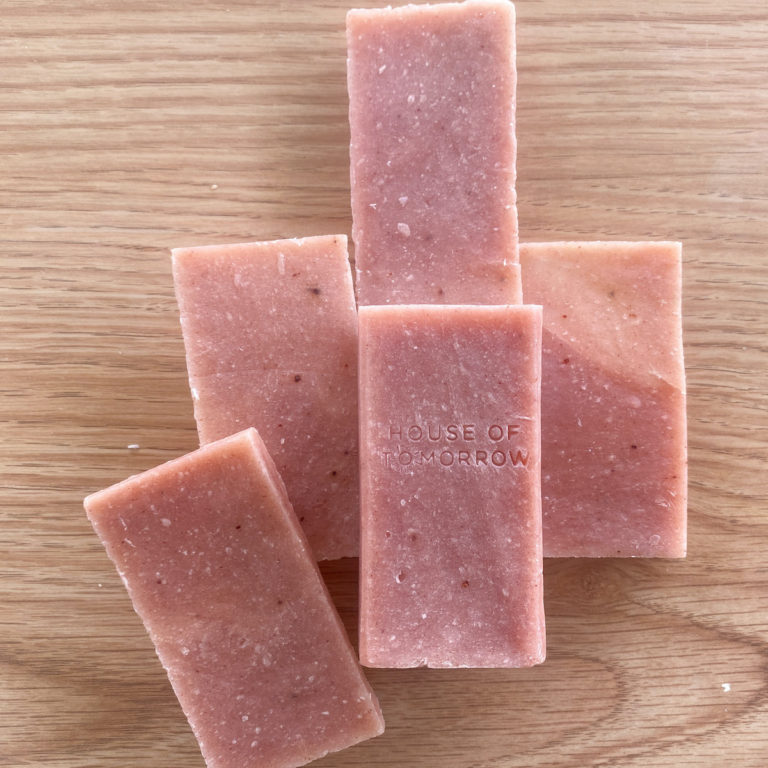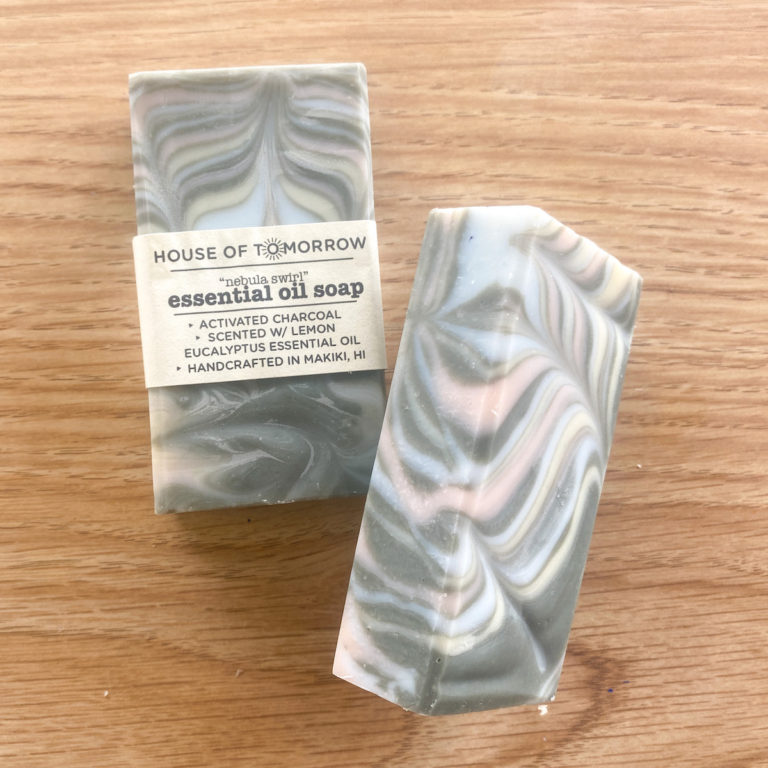Homemade Soap Cracking
Not to be dramatic, but homemade soap cracking on you can be a little bit heartbreaking. It’s so satisfying to pour your soap batter and see your soap get firmer each time you look at it, knowing that in the next day or three you’ll get to cut into your lovely loaf and admire the perfection that is sure to be your carefully crafted soap. Your excitement builds. You’re riding on a creative high.
…and then you see IT.

… and then you go “F^@#.”
I’ve had this happen to me with my dish soaps a number of times. Each time I wished I had been smart enough to make a smaller batch since they were all going to crack on my anyway. With some research I finally figured out what I was doing wrong.
Before we get into these factors, lets be clear upfront that cracked soap is still safe to use. It’s a minor cosmetic issue and even with a crack in it, homemade soap is still a beautiful thing, so if you crack some soap, please don’t throw it away! Ok, onto the show…
Watch Your Temperature
Much of the time heat is your friend in soapmaking. You use it to melt your solid fats, and heat from gelling can help your colors pop. And with hot process, using heat to cook your soap does something absolutely magical – it gives you soap that’s technically safe to use right then and there, no waiting necessary. All because of the magic of heat.
And sometimes heat is not your friend. Too much can cause volcano-ing, which is basically when your batter bubbles up and over, spilling all over your counters, pots, and molds.
And if your soap is too hot during the saponification process, your soap will crack in order to release heat trapped in the middle. The center of your loaf is often the hottest point so you’ll often see a soap crack at the top of the loaf in the center.
Listen, intuition and winging it can be awesome. In soapmaking though, you need to restrict that to the designing part of the process. When it comes to creating your soap base, it really does help to have tools to give you exact readings and measurements because small changes can result in big ugly soap cracks.
Things that can cause your soap to overheat include heating your oils to too high a temperature, adding sugar or ingredients that contain sugar (like milk or beer), and certain essential oils like spices or florals. Adjust these variables until you find what works to give you uncracked soap.
Hard or Brittle Oils
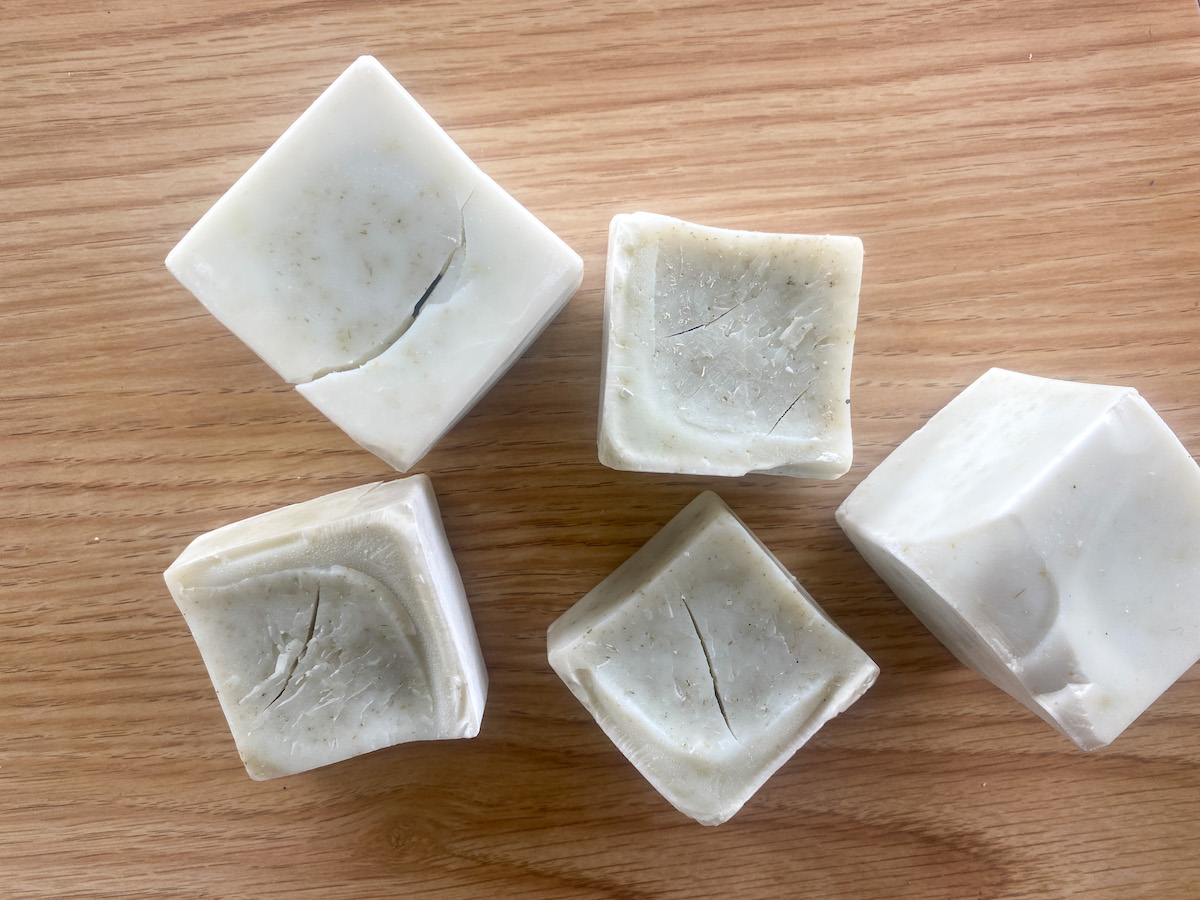
Another factor is your recipe. If your recipe contains a high percentage of butters, hard oils like coconut, or waxes like beeswax, it can result in a more brittle soap. This can result in a great hard bar of soap, but the trade off there is that it will crack more easily. Maybe the corners will chip off or maybe you’ll just get a big fat crack right down the middle.
For certain soaps like dish soap, that’s the nature of the beast. You use the hard oils because of all the benefits it provides – great cleansing and lathering properties. If you can’t adjust your formula to use fewer brittle oils, you really want to pay attention to the temperature as discussed above.
Lye Heavy Formula Causes Homemade Soap Cracking Problems
Ok, you know when I said at the beginning of this article that cracked soap is just as cosmetic issue and is still perfectly safe to use? That’s the case for the other issues discussed above, not for lye heavy soap.
Lye heavy soap is dry (to the point where you can often notice the difference visually) and brittle.
Lye heavy soap will have a high PH. You may want to conduct a test to determine the PH of your soap if you suspect the cracking is due to using too much lye.
If this is your problem, turn it into laundry detergent soap and DO NOT let anyone use it on their skin.
How To Fix Cracked Soap
Sometimes, if you catch the crack early enough, you can salvage your work. Check out this video from Good Earth Spa that shows you just how to do this.
If your soap is harder than this though, or made with a higher percentage of more brittle oils, you might be out of luck and should focus on tweaking your process, your recipe, or both, to prevent homemade soap cracking experiences from reoccurring.


